Monthly Archives: March 2018
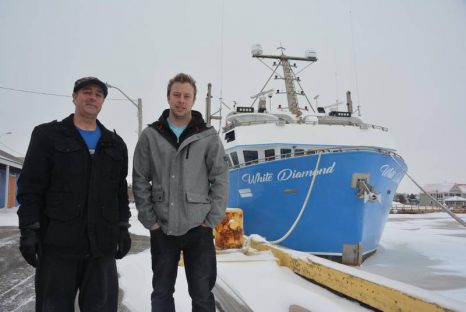
Prince Edward Island fisherman sails Arctic as modern-day explorer
Few have logged more nautical miles in Canada’s Arctic over the past six years than David MacIsaac. But the northward course of the modern-day Arctic exploring captain has been a wandering one. MacIsaac was supposed to be an accountant. At least, that’s what he was studying at university 30 years ago when his dad called. David MacIsaac Sr., long a crewman, had bought a lobster licence and gear and was offering his son a job. Like his father, David found physical satisfaction in working on the water. >click to read< The series, Our Changing Arctic: Part 1>click to read<12:06
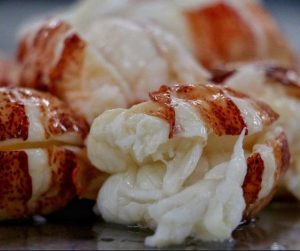
Planned lobster processing facility could be US game changer
A seafood dealer is planning to build one of the largest lobster processing facilities in the country in Maine, potentially meeting a need the state’s lifeblood’s industry has long sought to address. Maine fishermen catch more lobsters than anyone else in the U.S., but the state has a lack of facilities to process their meat for commercial use. Enter Ready Seafood Co. of Portland, which plans to change that with a new 40-acre campus in Saco, 18 miles south of Portland. >click to read< 10:27
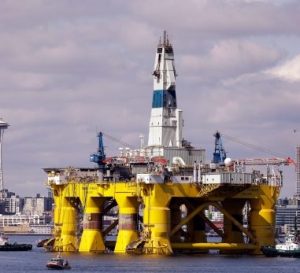
U.S. States Slow Trump’s Offshore Drilling Expansion Plan
The Trump administration’s plan to broadly expand drilling in U.S. offshore waters is moving slowly due to opposition from coastal states and indifference from oil companies that have turned their focus to other opportunities. The administration hopes encouraging U.S. energy development outside of shale oilfields will further its goal of “energy dominance.” But existing Obama administration lease rules remain in place through 2022 unless the new rules gain approval. The Department of the Interior this year proposed opening vast new acreage in the U.S. outer continental shelf to drilling. >click to read< 08:56
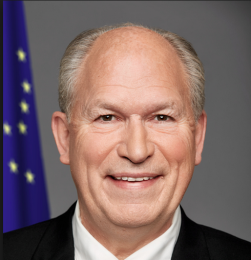
Governor Walker calls for federal disaster declaration for Pacific cod fishery
Gov. Bill Walker and Lt. Gov. Byron Mallott signed a letter last week asking the federal government to declare the 2018 Pacific cod fishery in the Gulf of Alaska a disaster. That could make the fishery eligible for federal relief funds, although who specifically would receive money would be figured out later.,, According to the letter, the value of the 2018 Pacific cod harvest is looking at a more than 80 percent drop in revenue from the five-year average. Barbara Blake, senior adviser to Walker and Mallott, said crossing that 80 percent threshold makes the fishery eligible for a disaster declaration. >click to read< 08:28
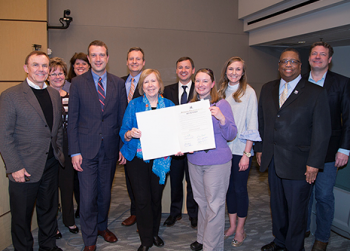
Council recognizes the 90th annual “Blessing of the Fleet” as crews prepare to head to Alaska
Our region enjoys some of the best seafood in the world, much brought to our shores from crews preparing to go to Alaska for the summer fishing season. The Metropolitan King County Council today recognized those brave men and women who will spend their summer in the North Pacific by recognizing the “Blessing of the Fleet” which will occur this weekend, the start of the halibut fishing season.,, “These crews and their captains face a level of danger that most of us will never confront in our workplace, and they do so year after year,” said Councilmember Jeanne Kohl-Welles, the sponsor of the recognition. For the 90th year, families and friends of the crews preparing to leave will gather at Fisherman’s Terminal in Ballard for a blessing,,, >click to read<20:31
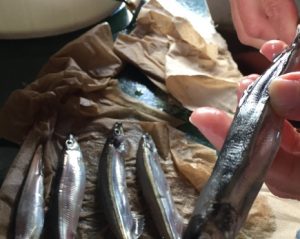
Capelin decline 70 per cent but scientists not worried
Scientists with the federal Department of Fisheries and Oceans found a lot fewer capelin last year during their survey of the stock — a decline of 70 per cent from the last count, done in 2015. Scientists blame late spawning for the population drop. Once the capelin larvae hatch they need tiny copepods for food, and if they hatch after the copepod population spikes, then fewer larvae will survive.,,, Last year about 20,000 tonnes of capelin were fished commercially, but scientists at DFO said fishing has little impact on the decline.,, >click to read< 16:42
Poor outlook for caplin this year: DFO – Caplin fishery does not negatively affect caplin abundance, scientist says, >click to read< 21:03
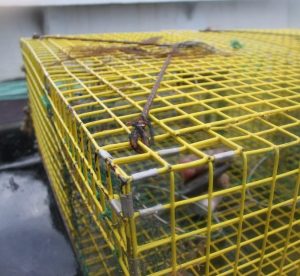
Lobster traps washed up on Great Bores Head, Hampton, NH, Finder would like to get them back to the owners
We just got this email, and If you’re missing some gear, you could check with Bev Hollingworth. AT OUR HOUSE ON GREAT BOARS HEAD “BARNACLE” WE HAVE 18 TRAPS WASHED UP FROM LAST WEEKS STORM. WHO CAN I CONTACT TO ARRANGE FOR THEM TO BE PICKED UP. THE PICK UP COULD BE UP OUR STAIRS TO TRUCK PICKING UP. I CAN BE REACHED BY THIS EMAIL, >[email protected]<. HAVE WORKED WITH ERIK ANDERSON YEARS AGO. BEV HOLLINGWORTH15:38
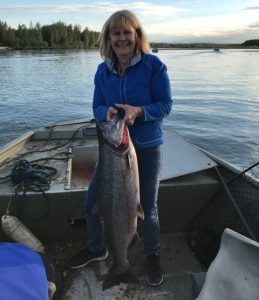
No kings
Snow and ice still cover the tributaries of the Susitna River basin, but already the Alaska Department of Fish and Game is talking about closing the Chinook salmon fishery for the 2018 season. The agency’s fear for the drainages of both the Susitna and Little Susitna mirrors the 2017 fear for the 24,000-square-mile Copper River basin : No king salmon. In the case of the Copper last year, the state was faced with a scientifically calculated Chinook forecast calling for the return of 29,000 of the fish – only 5,000 more than were needed for spawning in streams located behind a gauntlet of commercial, subsistence, personal-use dipnet, and rod-and-reel fisheries. >click to read<14:48

“mansplaining” – John McDonnell channels Justin Trudeau by referring to ‘fisherpeople’ instead of fishermen
John McDonnell, Labour’s shadow chancellor, appeared to be channeling his inner Justin Trudeau yesterday when he referred to British fishermen as “fisherpeople” during a television interview. Labour’s shadow chancellor spoke of the need to protect the interests of British fishing fleets after Brexit, employing the unfamiliar phrase which drew comparisons to the Canadian Prime Minister. Mr Trudeau, notorious for his careful and sometimes strange use of language, recently told a young woman that she should refer to “peoplekind” instead of “mankind”, a decision he was criticsed for. >click to read< 11:24
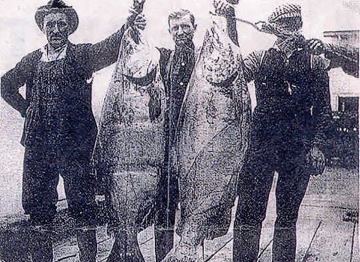
This Is Why You Don’t See People-Sized Salmon Anymore
While the orcas of Puget Sound are sliding toward extinction, orcas farther north have been expanding their numbers. Their burgeoning hunger for big fish may be causing the killer whales’ main prey, chinook salmon, to shrink up and down the West Coast. Chinook salmon are also known as kings: the biggest of all salmon. They used to grow so enormous that it’s hard now to believe the old photos in which fishermen stand next to chinooks almost as tall as they are, sometimes weighing 100 pounds or more. >click to read<11:06
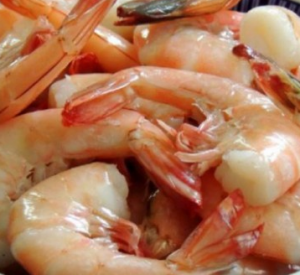
Ga. Coast’s fishing families featured in free Green Screen Film Fest
It is the picturesque embodiment of the good life in this corner of the state, but some folks still look to Georgia’s coastal waters for their very livelihoods. The stories of these stalwart folks who steadfastly ply those waters to reap its bountiful seafood harvest are the focus of “Shifting Baselines,” the featured documentary in the free Green Screen Film Festival from 10:30 a.m. to 2:30 p.m. this Saturday at the Historic Ritz Theater in downtown Brunswick. The one-hour film chronicles the likes of longtime Darien commercial fisherman Charlie Phillips, as well as the enduring legacy of Georgia fishing dynasties such as the Timmons and Gale families. >click to read< 09:32
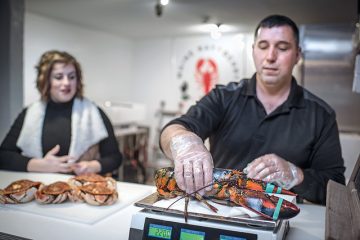
It’s tough being a seafood lover living in landlocked central Pennsylvania.
Shaun Knight and Christa Stofferahn are changing all that. In August 2017, they opened Maine Bay & Berry, and since then, Knight has been making the 12-hour trek to Maine three or four times each month to bring back fresh seafood straight from New England to State College. How fresh is it? “I literally go onto the boat and pull the lobsters out of the water myself,” Knight says. Born and raised in Winter Harbor, Maine, Knight taught in the Smeal College of Business at Penn State for 15 years. During that time, he would bring back seafood for his colleagues whenever he went back to visit family in Maine.,,, “Christa has always told me I should be doing this as a business.”>click to read<18:40
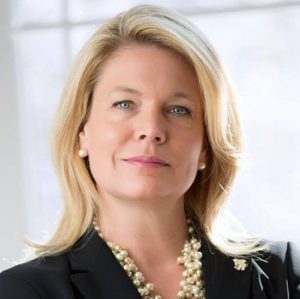
Somers to hold forum on commercial fishing Wednesday in Mystic, a free, open forum event
“Commercial fishing has been an integral part of Southeastern Connecticut’s way of life since before there were colonies. Local families going back generations have worked the sea to provide fresh seafood and feed the Eastern seaboard. These small proud family businesses are now on the verge of closing forever. I am looking forward to this panel discussion so that we can bring awareness to the problem, listen to first-hand experiences and work together to take steps to remedy it and help fishermen prosper in our state again. I want to encourage residents in Southeastern Connecticut to come to this free, open forum event.” >click to read<16:28
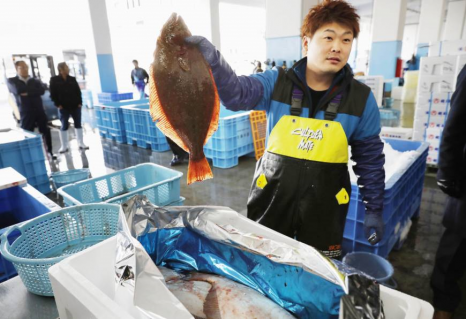
Fukushima’s fishing industry stuck in slow but steady battle to change public perceptions after 3/11
Since the March 2011 nuclear crisis, fishery workers in Fukushima Prefecture have had the unprecedented and daunting task of convincing consumers that local fish are safe to eat. Fishing has resumed on a “trial” basis and the catches are gradually increasing. But seven years on, radiation checks are now part of their routine before shipping the fish to markets. Japan has a cuisine culture that is often synonymous with sushi overseas, and consumers value not just the safety but the freshness of seafood. >click to read< 13:14
Seven Years After Tsunami, Japanese Live Uneasily With Seawalls – When a massive earthquake struck in 2011, Japanese oyster fisherman Atsushi Fujita was working as usual by the sea. Soon after, a huge black wave slammed into his city and killed nearly 2,000 people.>click to read<
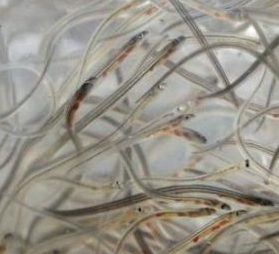
Maine Fishermen of baby eels expect high price as stocks dry up on the international market
Members of Maine’s baby-eel fishing industry are expecting high prices for the tiny fish this year because of a shortage on the international market, and sushi lovers could end up feeling the pinch. Maine is the only U.S. state with a significant fishery for baby eels, or elvers. The tiny, translucent eels are sold to Asian aquaculture companies to be raised to maturity for use as food.,,, The fishery is a source of reliable income in rural Maine. Julie Keene, an elver fishermen based in Lubec, is looking forward to a good harvest this year. >click to read<11:19
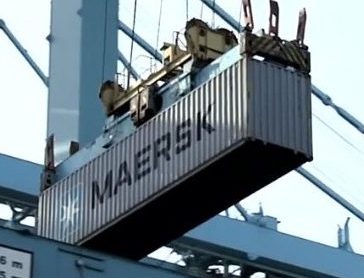
North Carolina: Maersk Shanghai Container Containing Acid Yet to be Found
The U.S. Coast Guard, NOAA and Environmental Protection Agency are continuing to monitor 76 shipping containers lost from a container ship off North Carolina, but are yet to locate one containing 5,900 pounds of sulfuric acid. On March 4, the Maersk Shanghai alerted watchstanders that during stormy conditions they lost about 70 containers about 17 miles off Oregon Inlet, North Carolina. Maersk later confirmed the total number of containers lost overboard was 76 as well as their contents.>click to read<10:48
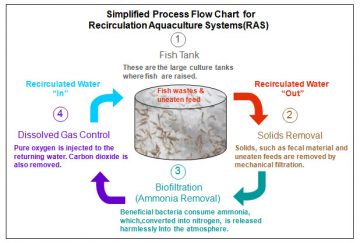
Fish Farming – Bio-security for Fish Rearing: Re-circulating Aquaculture Systems
Re-circulating Aquaculture is a technique for raising water borne animals in a closed (usually indoor) system which minimizes water consumption, provides maximum control of the livestock’s environment, and reduces the risk of exposure to parasites, disease, and predators High Density Re-circulating Aquaculture System (HDRAS) is a system in which aquatic organisms are cultured in water which is serially reconditioned and reused. Closed-system aquaculture presents a new and expanding commercial opportunity. Re-circulating aquaculture systems (RAS) are tank-based systems in which fish can be grown at high density under controlled environmental conditions. They are closed-loop facilities that retain and treat the water within the system. >click to read<09:33

What a disappointment. It seems Senator Markey is still holding out on Bill S1322, American Fisheries Advisory Committee Act
What a disappointment. I just got a call from Bruce Schactler of the National Seafood Marketing Coalition, and it seems Senator Markey is still holding out on Bill S1322…the American Fisheries Advisory Committee Act. Senator, I have always supported you because you were there for us with regards to fisherman. I am a retired Captain and we have met in the past. I have reached out to you many times recently regarding this important bill by Senator Sullivan of Alaska who has a bill that we want passed, and expect you to support. Sam Parisi>click to read< 21:15
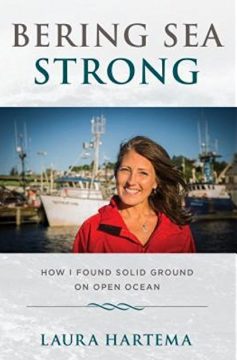
What I learned about myself as the sole female crew member on a commercial fishing vessel
Before the universality of social media and the promulgation of movements like #MeToo that now prominently display powerful, mold-breaking women as role models for younger generations, I embarked on a 90-day journey as the sole female aboard a commercial fishing vessel among 25 men across the perilous Bering Sea. As the passage below recounting my first day aboard the ship demonstrates, I was in uncharted territory (both literally and figuratively). From “Bering Sea Strong: How I Found Solid Ground on Open Ocean” by Laura Hartema >click to read<18:03
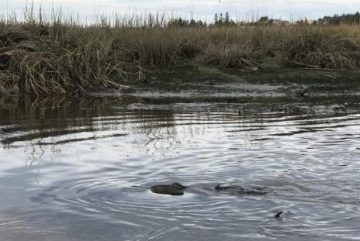
Prince William Sound pinks find their way into Cook Inlet commercial harvest
The Alaska Department of Fish and Game has been conducting a limited study on straying hatchery pink salmon around lower Cook Inlet and Kachemak Bay to see whether fish from the Tutka Bay Lagoon and Port Graham hatcheries have been spawning in wild streams, but to its surprise, it discovered Prince William Sound hatchery fish in several local systems. But hatchery pinks from the Sound are also winding up in the commercial harvest. >click to read<15:24

Low numbers of endangered whales raise question about lobster industry impacts
Woods Hole Oceanographic Institution scientist Mark Baumgartner said that to help the whales survive much longer, the ropes Maine lobstermen use to tend their traps have to be modified or even eliminated. And it’s not just for the whales’ sake. “I feel the industry is in jeopardy,” Baumgartner said.,,, Last month the Conservation Law Foundation’s Portland office filed a federal lawsuit against the National Oceanic and Atmospheric Administration for violating the Endangered Species Act. >click to read< 12:10
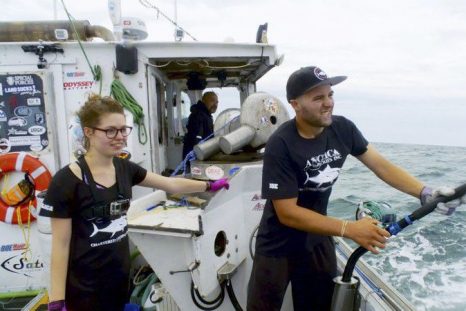
New ‘Wicked Tuna’ season starts Sunday!
National Geographic Channel launches its seventh season of “Wicked Tuna” this Sunday, March 11, at 9 p.m., with an extended 90-minute episode. The new season finds the captains in need of redemption. Beverly resident Capt. Dave Marciano of the Hard Merchandise is out to turn things around after a disappointing season in Gloucester last year, in which he caught only five fish. Over on the Hot Tuna, Capt. TJ Ott had a dismal season in the Outer Banks. Meanwhile, Capt. Tyler McLaughlin of the Pinwheel is armed with a new boat and a skilled mate. >click to read< 11:04
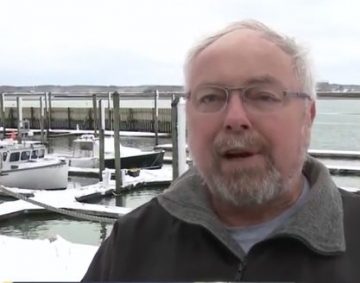
N.H. Fishermen say they haven’t been off water this long since Perfect Storm
New England fishermen can finally get back to work with the departure of the latest nor’easter to hit the region. Most fishermen said they have been off the water since March 1. They said the extended time away from their boats has affected their livelihoods and the availability of fresh, local fish. Giant waves pounded the coast for seven days during back-to-back nor’easters. “The waves were probably five stories high, roughly 35 to 40 feet,” fisherman David Goethel said. >click to read< 10:15
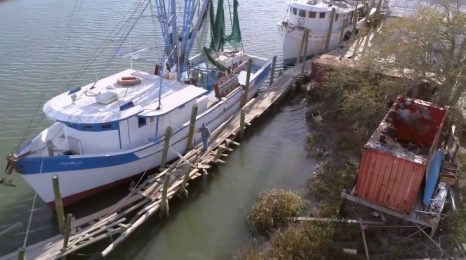
Beaufort community helped save this seafood institution.
It’s officially a community barn-raising. An effort to raise money and rebuild a Beaufort County seafood institution spread in recent weeks with the help of volunteers and social media. Now the first sections of Gay Fish Co.’s storm-ravaged docks can be rebuilt in time for shrimp season. Organizers expect work to begin the first week of April and finish by June. “Everybody is convinced now it’s going to happen,” said dock builder Richard Knieriem, who is volunteering to oversee the construction. >click to read< 09:07
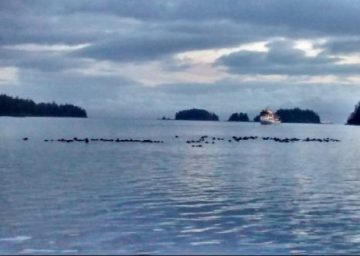
Petersburg assembly joins call for increased sea otter harvest
Petersburg Borough Assembly joined the call this month for measures to slow a growing population of sea otters in Southeast, as the marine mammals are impacting shellfish stocks. The Assembly passed a resolution at its March 5 meeting, calling for the federal government to work with the State of Alaska and Alaska Native tribes to establish strategies for an ecological balance of shellfish resources and the reintroduced sea otters. >click to read<08:23
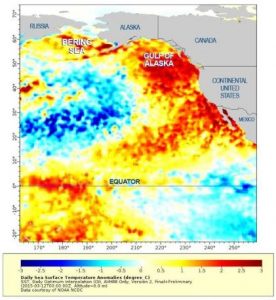
North Pacific Recovering From The Blob, Salmon More Slowly
Ocean conditions off most of the U.S. West Coast are returning roughly to average, after an extreme marine heat wave from about 2014 to 2016 disrupted the California Current Ecosystem and shifted many species beyond their traditional range, according to a new reportfrom NOAA Fisheries’ two marine laboratories on the West Coast. Some warm waters remain off the Pacific Northwest, however. >click to read<07:57







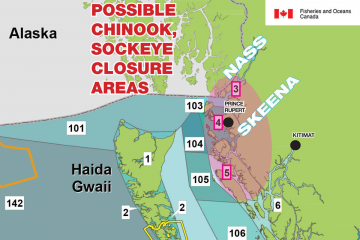
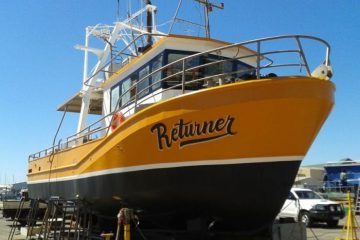



























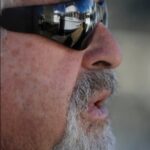

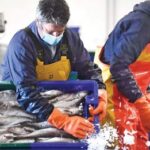
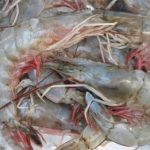

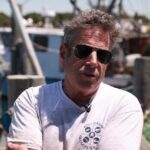
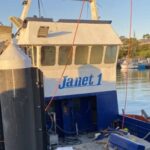
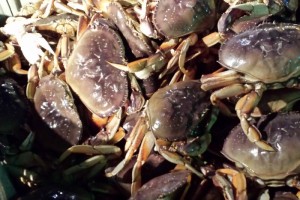
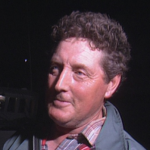

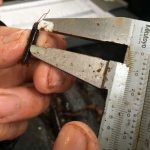



WEATHER UPDATE: NEFMC Program Review, Tuesday, March 13 modifications, to accommodate remote public comments
Due to the incoming winter storm, the New England Fishery Management Council will provide an opportunity for members of the public to speak remotely via webinar during scheduled public comment periods on Tuesday, March 13 during the first day of the Council Program Review. Here’s what you need to know.,, Panel members will be arriving in advance of the storm, and the review meeting will proceed on schedule.,,, Therefore, the New England Council is expanding the webinar option to accommodate remote public comments during the storm. At present, this option will be available only on Tuesday, March 13. Register for the webinar >click to register/listen/comment<>click to read the updated info< 12:35
Share this post